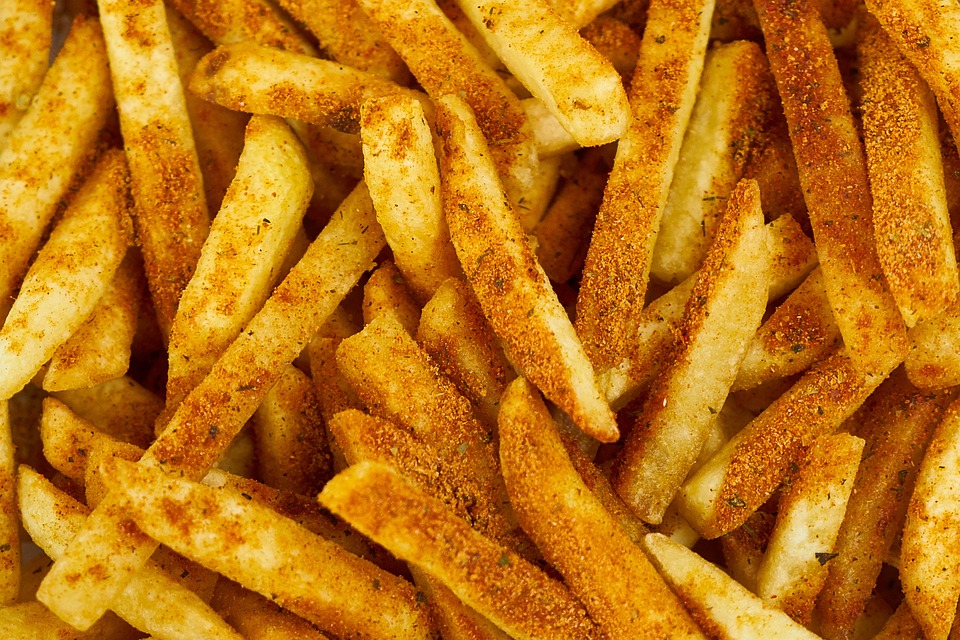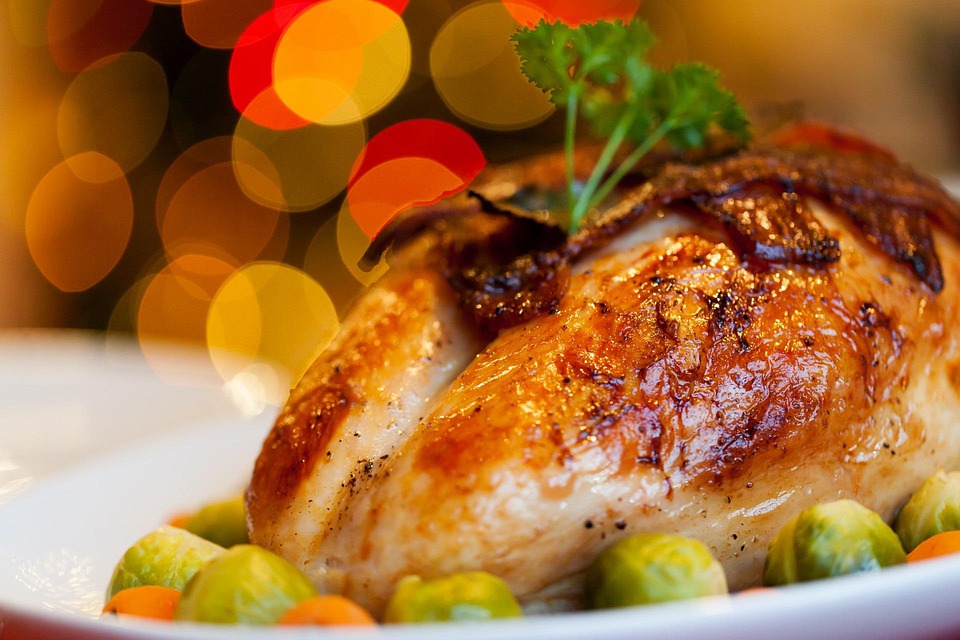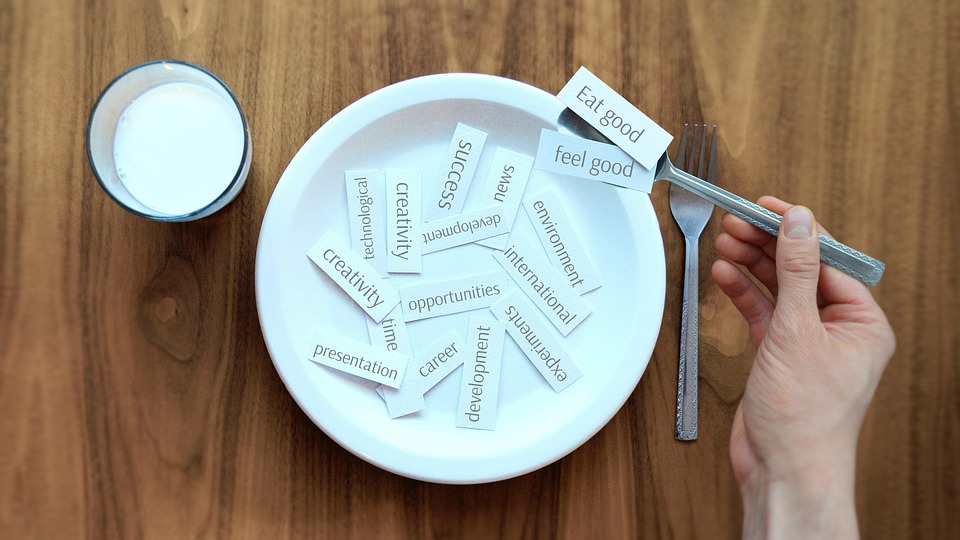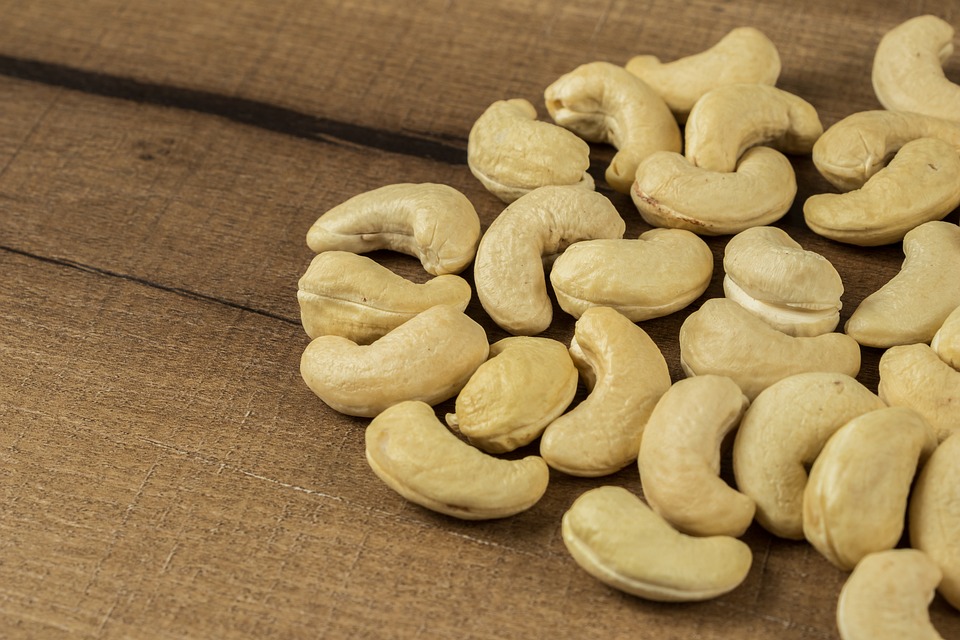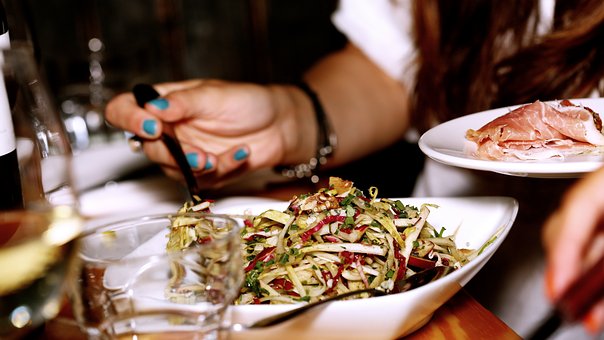
If you’ve ever had extra helpings of lasagna even though you’re already full or eaten a second slice of cake, bravo – you’ve eaten more than you should have. It is clear at times that we eat too much, but other times we are oblivious to our overconsumption. Pondering the reasons for excessive consumption of food and how to put an end to it for good?
It’s a fact that, in the United States, there’s a great number of people who have a problem with overeating. In fact, we’re a nation of overeaters.
More than one-third of American adults are obese. Illnesses stemming from being overweight, such as type 2 diabetes, cardiac ailments, stroke and particular malignancies, represent some of the most common causes of death that can be avoided in the U.S. For 2019, the U.S. had an expenditure of about $173 billion for medical expenses related to obesity.
That’s just obese individuals. including people who are overweight, the proportion of adults in the United States is greater than 70 percent.
The cause of the high prevalence of Americans being overweight or obese can largely be attributed to the fact that we now consume more calories than ever before.
The positive thing is you don’t need to eat until you feel overly stuffed. The following strategies work for how to stop overeating.
There are four relatively straightforward but difficult to implement steps to curbing overeating.
If you are aiming to shed pounds, it is essential that you progress quickly through these 4 phases. You should aim to attain your ideal weight swiftly, making use of any shortcut you can.
Invest the effort necessary to do this correctly. Every step is based on the preceding one, so if you don’t have it perfected, you won’t reach the same level of success by the end.
This gives a brief summary of every step, but there’s a whole lot more to it. Here’s the general breakdown of how it goes.
4 Steps For How To Stop Overeating
Step 1 – Learn Your Eating Boundaries
The initial stage will not seem to be much like freedom with regards to eating. People normally consider this part of the process “dieting.” It’s necessary to face the fact that you’ve been eating too much and figure out what an appropriate amount of food looks like for you. Assess where you stand now by analyzing your current weight, BMI, and caloric intake, then check what figures are considered healthy for someone within your age range and body type.
Certain individuals rely on particular dietary regimens such as keto diets or intermittent fasting in order to establish their healthy limits, though these often do not prove to be lasting habits for the majority of people.
Some of the typical tools for this stage include:
- calorie counting (you can read more of my thoughts on calorie counting for weight loss here)
- food tracking (like My Fitness Pal, Lose It, or Weight Watchers)
- weighing yourself
- checking BMI charts (here’s a BMI calculator to see where you are)
Many people attempting to lose weight become discouraged when they sense deprivation and quit. No one desires to constantly monitor their calorie intake and what they eat daily forever! But after taking in more calories and seeing an increase in their weight, they come to the conclusion that they must begin a diet again, and thus this cycle regularly repeats itself. It is undeniable that monitoring what you eat and calculating the amount of calories consumed may be a boring activity (particularly at the start), yet reconsidering your viewpoint on them could be a great assistance.
Tracking calories is not a “diet plan”. It is a resource to let you see how much food you have been consuming and display a healthy quantity of sustenance your body needs.
That’s it! It’s okay to be angry at the statistics, but that’s all they are in the end – figures. They are not ridiculing you for consuming the equivalent of a day’s worth of calories in chocolate cake for your morning meal.
They are merely a tool to help you see.
And this stage typically produces some great weight loss!
Before You Move To The Next Stage…
Prior to advancing to the next level, it is essential that you not only understand what your dietary limits are (the amount of calories you should be consuming each day), but should also be habitually adhering to those limits.
You should aim to eat the right amount of calories most of the time, but not always.
Step 2 – Get A Handle On Your Emotional Eating
Now that you have established an appropriate caloric intake, it is time to shift your focus to the motivations that drive your eating habits rather than simply how much food you are consuming.
You should still be consuming food within the recommended calorie limit. If you require the rule of counting and tallying to complete it (chances are you will), keep using those aids.
If your motivation for eating is anything other than real hunger, then you have gone through the phenomenon of emotional eating.
Maybe it’s because you are:
- bored
- tired
- trying to appease a food pusher
- stressed
- lonely
- celebrating (birthdays, holidays, National Donut Day, a new job)
- trying to relax/unwind
- overwhelmed
Before You Move To The Next Stage…
Prior to progressing to the following step, you ought to possess a greater insight into the feelings that may cause you to eat, whether they be depression or sorrow.
You should attempt to find alternate methods to handle your feelings in a more beneficial manner.
You should be able to resist the urge to indulge in your food desires on a regular basis.
Step 3 – Learn Your Hunger Signals
It is essential to keep practicing how you respond to your feelings while it is also the right time to concentrate on perceiving your body’s signs.
In the initial phase, one should not necessarily believe their appetite indicators. It takes some time for your body to become accustomed to not consuming more than necessary if it has been accustomed to overeating. It needs to be readjusted to accepting and expecting the proper amount of food.
Previously, your body likely felt genuinely hungry even when it wasn’t truly in need of nourishment because you had educated it to anticipate food during specific moments and it had become habituated to overeating.
Now that you are aware of the number of calories you should be consuming and you have gained an ability to recognize between when you require food due to emotions and when you actually need to eat, it is time to take notice of the indications that your body is giving you.
Before You Move To The Next Stage…
Prior to progressing to the next step, your diet should be mainly comprised of natural foods.
You should be aware of when your body is telling you that it is hungry and try not to overeat until you feel overly full most of the time.
Step 4 – Intuitive Eating
Intuitive eating is where you experience food freedom. At this point, you have rehearsed the other abilities to the extent that they have become almost instinctive. It’s not necessary to monitor the calories that you take in, because you have established a habit of eating within your designated limits, and now it comes naturally.
Eating is no longer your go-to way of coping with your feelings, so there’s no need to be concerned you’ll overindulge when you’re near your favorite snacks. Pay attention to the cues your body is sending to you regarding when to start and end your meal. Although there are still food options that draw attention, you are the one in charge of what you eat, not any desires for food.
Once you have arrived at this point, it is probable that you have achieved the goal you set for yourself in terms of your weight.
A Note On Backsliding
It’s always possible to backslide. An occurrence that is filled with tension may cause you to revert to unbeneficial practices from the past.
Stay alert and if you notice it happening, take these measures to regain control.
Practice self-compassion, pay attention to your emotions and circumstances, take the necessary intermediate measures, and seek assistance when required.
Main Causes of Overeating
There are numerous explanations for why numerous U.S. adults are overweight or obese. The epidemic is due to consuming an excessive amount of sugar added to our meals, prepared foods, and inadequate physical activity.
Consuming too much food is often forgotten as a big contributor to the problem. It is obvious that consuming too much food is the cause of overeating, however the origin of this behavior may be more complicated. What causes us to consume more food than we intended?
- You’re responding to your habits and outside cues. If you normally settle down at 8 p.m. to catch up on your favorite TV programs and eat a few pieces of chocolate, you’ll likely find yourself reaching for chocolate even on those nights when you had a late dinner and aren’t hungry. You’ve created a habit that associates TV time with chocolate.
- The same goes for external clues, like TV commercials or even just the availability of food (like snacks in the break room at work, for example). Because food used to be scarce, our bodies are designed to eat when we spot food.
- While we’re no longer foraging for food and stowing away calories for days when food isn’t readily available, our bodies haven’t changed much from those days. When we see food, our brains think, “Hey, there’s food there! Let’s eat.”
- You’re eating foods that make you hungrier. Did you know that some foods actually make you more hungry? If you’re eating foods with little to no nutritional value, particularly sugary foods, refined carbohydrates (like white bread and pasta) and artificial sweeteners, your blood sugar levels are likely to spike up, leaving you feeling hungry sooner.
- Additionally, sugar activates the brain in a way unlike other foods, keeping it from feeling full.
- You’re affected by one of these weird triggers. Did you just eat but find yourself hungry again? Salty foods, certain medications and even air conditioning are hunger triggers that can cause you to overeat.
- You’re not eating enough regularly. The very American way of dieting — severely restricting calories until you’re starving, binging on whatever’s nearby and then restarting the diet all over again — plays a role in overeating causes.
- When we restrict calories to a level under what’s needed to function optimally, our bodies think they’re starving. When we finally do eat, we’re more likely to stuff our faces, eating well past the point of satiety.
- You’re stressed. You’re more likely to crave unhealthy, fatty foods when you’re stressed, especially if you’re female. Women are more affected by stress eating than men. Interestingly (but not surprisingly), people who are dieting tend to increase their food consumption when stressed — and they’re not overeating carrot sticks. They opt for the same food they normally shun.
- You’re hungry — but not for food. Similar to stress, when we’re dealing with difficult emotions, we often turn to food to soothe our feelings and help us escape. They don’t call it comfort food for nothing, after all.
- You’re not paying attention to your food. If you’re scrolling through your news feed, watching TV or working at your desk while eating, it’s likely that you’re overeating. When you’re not practicing mindful eating, it’s easy to eat more than you intended in one sitting.
- If you’re a snacker, you might also eat more than you realize as you graze throughout the day. Even if they’re healthy snacks, if you’re not keeping track, you may be surprised to find that you’re eating well over what you thought.
- You’re eating bigger portion sizes. This one isn’t entirely our own fault, but portion sizes began increasing in the 1970s and haven’t really stopped. It’s not just the usual culprits like fast food, either; restaurants are serving food on larger plates, muffins are getting bigger and those sugary coffee drinks are getting taller. With these bigger sizes comes overeating. As one study found, when portion sizes are increased, people eat more.
Precautions
Many of us may find ourselves consuming excessive amounts of food at one point or another, such as when going through an intense emotional situation like a breakup. Nevertheless, it differs from binge eating, a significant eating disorder in which consuming “restricted” foods is carried out with deep suffering, feeling embarrassed, frustrated, and angered with oneself, which is then pursued by strict dieting and not consuming anything further and binge eating yet again.
It is commonplace to have days where you may eat too much, but if you experience recurring episodes of overindulging in food, please look for assistance.
You may also find it useful to get professional help from a mental health provider, along with the other natural tactics, if you determine that emotional concerns largely contribute to your overconsumption of food. Speaking with a specialist about some of the underlying causes of your excessive eating could be very beneficial.


